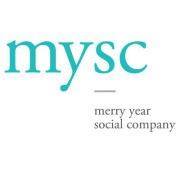- About AVPN
-
-
-
About AVPN
Who We Are
We are a leading ecosystem builder that is increasing the flow of financial, human, and intellectual capital from Asia and around the world into the social sector in Asia. We provide a network of peers, rigorous learning programmes, and innovative capital mobilization opportunities that make sure resources are more effectively deployed.
-
-
-
- Members
-
-
-
Membership Benefits
Unrestricted access to AVPN research reports and case studies
Access market-specific snapshots and opportunities
Increased visibility for events, programs and insights via AVPN website, blog, newsletters and social media channels
Leverage the AVPN platform to bring under-represented social issues top of mind for more than 600 social investors
-
-
-
- Resources
-
-
-
Resources
Highlights of the week
Trust-Based Philanthropy
In the face of increasingly complex and, sometimes rapidly, changing needs on the ground, it is crucial to take a step back and reconsider the status quo.
APAC Sustainability Seed Fund 2.0
By leveraging the success of the first round of the APAC Sustainability Seed Fund, AVPN continues to mobilise continuum of capital into supporting climate solutions in the region.
Faith and Giving
Faith, and the values, belief systems, moral codes, and religious doctrines, that underlie it, shape much of philanthropy across the world. From addressing needs in underserved communities to investing in sustainable energy solutions, faith-aligned givers are demonstrating that compassion can be a catalyst for a more just and equitable world. However, the fundamental drivers of faith-aligned giving often remain unexamined.
-
-
-
- Markets
-
-
-
Markets
We are a leading ecosystem builder that is increasing the flow of financial, human, and intellectual capital from Asia and around the world into the social sector in Asia. We provide a network of peers, rigorous learning programmes, and innovative capital mobilization opportunities that make sure resources are more effectively deployed.
Explore Markets
-
-
-
- Impact Communities
-
-
-
Impact Communities
-
-
-
- Capital Mobilisation
-
-
-
Capital Mobilisation
Featured Deals
Socio-Economic Empowerment of Women
Climate Action and Environment, Education, Financial Inclusion, Gender, Livelihood and Poverty Alleviation
Solve Education: Education through Innovative Learning Platform
Education, Employability, Livelihood and Poverty Alleviation
Lotus Petal Sr. Sec School, Gurugram
Education, Employability, Health
IT Training Against Poverty in Cebu
Education, Employability, Livelihood and Poverty Alleviation
IT Vocational Training Against Poverty
Education, Employability, Livelihood and Poverty Alleviation
Gigatonne: Addressing Problems within the Carbon Credits Market
Climate Action and Environment, Financial Inclusion, Gender, Livelihood and Poverty Alleviation
-
-
-
- Events
-
-
-
Events
Upcoming Signature EventsAVPN Global Conference 2024
23 April 2024
-
25 April 2024
Signature Event
Upcoming Events
Restoring Equilibrium: SVCA 2024 Annual Conference – Seeking Balance in A Turbulent World
16 May 2024
-
-
-
Sheco: Marine Recovery Robot for Ocean Environment Clean-up
Sheco has developed a robot for marine recovery and water purification to clean floating contaminants, allowing marine businesses and organisations to easily manage contaminated water at their sites.
By

Sheco
Click here to learn more about the Impact Organisation
This is member exclusive
content. Click here to unlock
Social causes
Beneficiaries
SDGs covered
Endorsed by

MYSC (Merry Year Social Company)
MYSC is a leading social innovation consultancy & impact investor working mainly in Korea through impact network and partnership.
Market of Implementation
- South Korea
Problem
All water pollution accidents have one thing in common: a massive amount of manual work. Marine businesses and organisations are currently manually cleaning their water sites of contaminants such as algae, bulk dust and microplastics. The inefficient manual work involved creates problems of excessive carbon emissions and industrial accidents. Regulations to curb this problem in the market have been inadequate.
In South Korea alone, in the case of oil spill accidents, there are 270 cases annually, with 530,000 litres of oil split. Around the world, the rate of accidents happens 150 times more frequently.
Currently, more than 90% of oil spill accidents are small-scale, and inefficient manual work of using absorbent pads for more than 200 days is repeated every year. However, there are no lightweight and automated products on the market to resolve small-scale accidents. The South Korean Government possesses many oil skimmers to respond to large-scale accidents of national concern, but not for actual small-scale accidents.
At Sheco, we are filling in the gap for small-scale spill accidents.
Solution
We at Sheco, as a marine environment technology company, have developed the "Sheco Ark", a unique automated robot model that is able to enter both traditional oil skimming and oil absorption markets at once. We believe it can replace traditional marine recovery equipment for oil spill accidents, which has not seen much innovation in the recent decades.
In addition to product sales, rental, and recovery services, the components of the Sheco Ark are modular. This allows us to sell the built-in technologies such as the oil-water separation filter, marine drones and driving control software as separate products.
Our overall mission and growth strategy is to use the additional technologies from our Sheco Ark series at oil spill sites, and our aim is to remove all floating contaminants in the ocean and for marine-based businesses.
For more information on our solution, do refer to our Slide Deck.
Type of Carbon Reduced/Sequestered
CO2 (Carbon Dioxide)
Amount of Carbon Dioxide Equivalent Avoided/Sequestered
5800T/year
Means of Measurement
Obtain the coefficient of carbon emission from the incineration of oil absorbents and waste (carbon emission calculation method of the IPCC).
After that, measure the amount of absorbed oil per absorbent pad based on data (the amount of oil spills and absorbent pads used per year, statistics from the KCG). And, calculating by its coefficient, get 3.809T of carbon emissions from incinerating 1T of used absorbent pads, which is about 14,582T per year. Thus, at least 5,800T(40% of total) can be reduced.
Project’s Environment & Climate Capability
Climate Risk Reduction















